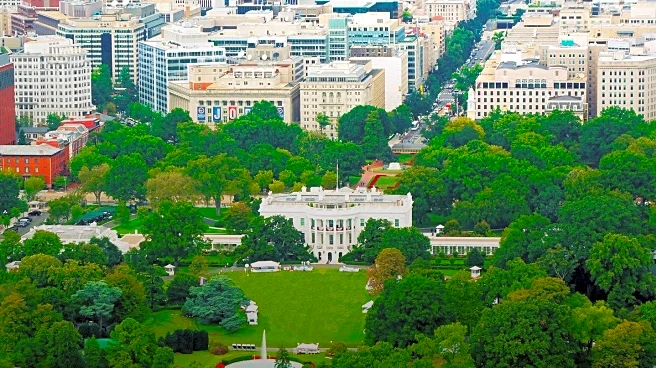What is the story about?
What's Happening?
Daytime dance parties have become increasingly popular in Washington D.C., providing an alternative to traditional nightlife. These events, such as Dancing on the Waterfront in Georgetown and Hand Dancing With DJ Rick G at the Parks at Walter Reed, offer a community-building experience through dance. Morris Jackson, who founded Dancing on the Waterfront, emphasizes inclusivity and joy, while DJ Rick G's hand dancing events cater to older adults, fostering social connections. Extended Play DC, another daytime event, focuses on house music and aims to create a safe and intimate environment for dance enthusiasts.
Why It's Important?
The rise of daytime dance parties reflects a shift in social dynamics, where people seek community and connection outside of conventional nightlife settings. These events cater to diverse groups, including families and older adults, promoting inclusivity and mental well-being. They offer a safe space for individuals to express themselves through dance, contributing to a sense of belonging and cultural exchange. As traditional clubs face challenges, such as closures during the pandemic, daytime dance parties provide an alternative that aligns with changing social preferences and health-conscious lifestyles.
What's Next?
As daytime dance parties continue to gain traction, organizers may expand their offerings to include more diverse music genres and locations. The success of these events could inspire similar initiatives in other cities, fostering a broader cultural movement. Stakeholders, including local governments and community organizations, might support these events through permits and funding, recognizing their positive impact on community engagement and mental health. Additionally, the popularity of daytime dance parties could influence the nightlife industry, encouraging venues to adapt to changing consumer preferences.
Beyond the Headlines
Daytime dance parties highlight the evolving nature of social interactions and the importance of creating inclusive spaces for cultural expression. They challenge traditional notions of nightlife, offering a platform for diverse communities to come together and celebrate through dance. These events also underscore the role of music and movement in promoting mental health and well-being, providing a therapeutic outlet for participants. As society continues to navigate post-pandemic realities, daytime dance parties represent a creative and adaptive approach to fostering community and joy.
















